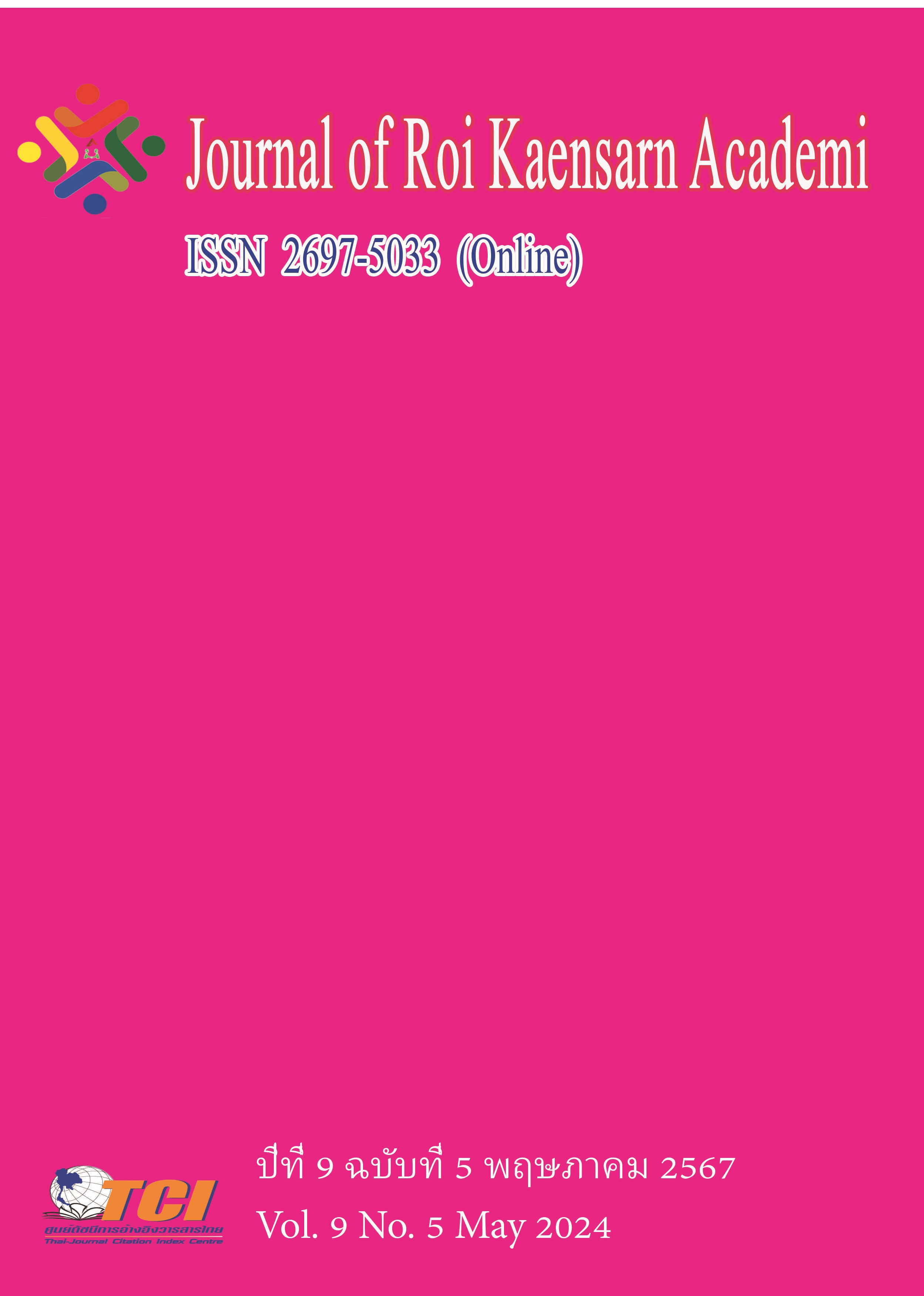The Mental Health Promotion Strategies for Undergraduate College Teachers in the New Era
Main Article Content
บทคัดย่อ
The goal of this study is strategies for promoting mental health of undergraduate college teachers in the new era. (1) The current situation of mental health of teachers in undergraduate colleges and universities in the new era, (2) Development of mental health promotion strategies for teachers in undergraduate colleges and universities in the new era, (3) Evaluation of mental health strategies for teachers in undergraduate colleges and universities in the new era. The sample is 409 teachers, who are composed of 67,397 teachers from 38 undergraduate colleges and universities in Guangxi, China. The Taro Yamane formula is used to determine the sample size with a 95% confidence level, and a multi-stage random sampling method is used to determine the sample size. Research tools include surveys addressing current conditions and expectations. Quantitative data analysis incorporates statistical indicators such as percentages, mean, standard deviation, and validity index, while qualitative research involves content analysis.
The research results are as follows: (1) The current status of mental health of teachers in undergraduate colleges in the new era is generally at a high level ( =3.54, SD=1.28). The current status is arranged in descending order as: psychological dimension, spiritual dimension, physical dimension and social dimension. The psychological dimension is considered to be the most pressing issue. (2) Propose BSP strategies for teachers’ mental health promotion from the psychological dimension. (3) The evaluation of strategies is possible and useful. These results provide valuable opinions for the field of teacher mental health research and also provide reference for the formulation of mental health policies.
Article Details
เอกสารอ้างอิง
Bing, G., & Yong, D. (2023). Research on mental health issues of college teachers. Journal of Higher Education. 4 (4), 134-137.
Guoliang, Y., Dongxian, J., & Jianjun, Z. (2010). Research on the preparation and current state of teachers’ mental health evaluation scale. Psychological Development and Education.
Kim, Y. S., Lee, H. Y., & Lee, M. H. (2017). Mental health literacy in Korean older adults: A cross-sectional survey. Journal of Psychiatric and Mental Health Nursing. 24 (07), 523-533.
Li, L. (2021). Research on mental health services for college teachers from the perspective of EAP. Educational Observation. 10 (44), 29 - 30.
Lihua, B. (2012a). Research on mental health problems and countermeasures of college teachers. Education and Teaching Forum. 8 (2),23 -25.
Lihua, B. (2012b). Research on mental health problems and countermeasures of college teachers. Education and Teaching Forum. 8 (2),23 -25.
Mingshu, G. (1999). Teacher Psychology. Beijing: People's Education Press. 127-129.
Ping, Y., Fangfang, T., & Yanfang, Z. (2005). Analysis of stress status of college teachers and its influencing factors. Chinese Hospital Statistics. 12 (4), 303-307.
Wei, B., Xiaoliang, X., & Weimin, W. (2021). Glass Building: The impact of occupational load on the health of college teachers. Peking University Education Review. (3), 21-40, 188-189.
Xi, J. (2017). Decisive victory in building a moderately prosperous society in all respects and striving for the great victory of socialism with Chinese characteristics for a new era—In the first chapter of the Communist Party of China Report at the Nineteenth National Congress. Beijing: People's Publishing House, 10.
Xiting, M., Weihua, L., & Rong, Q. (2011). Investigation and maintenance strategies of mental health status of college teachers. Journal of Yunnan Administration Institute. 4 (3), 170-173.

